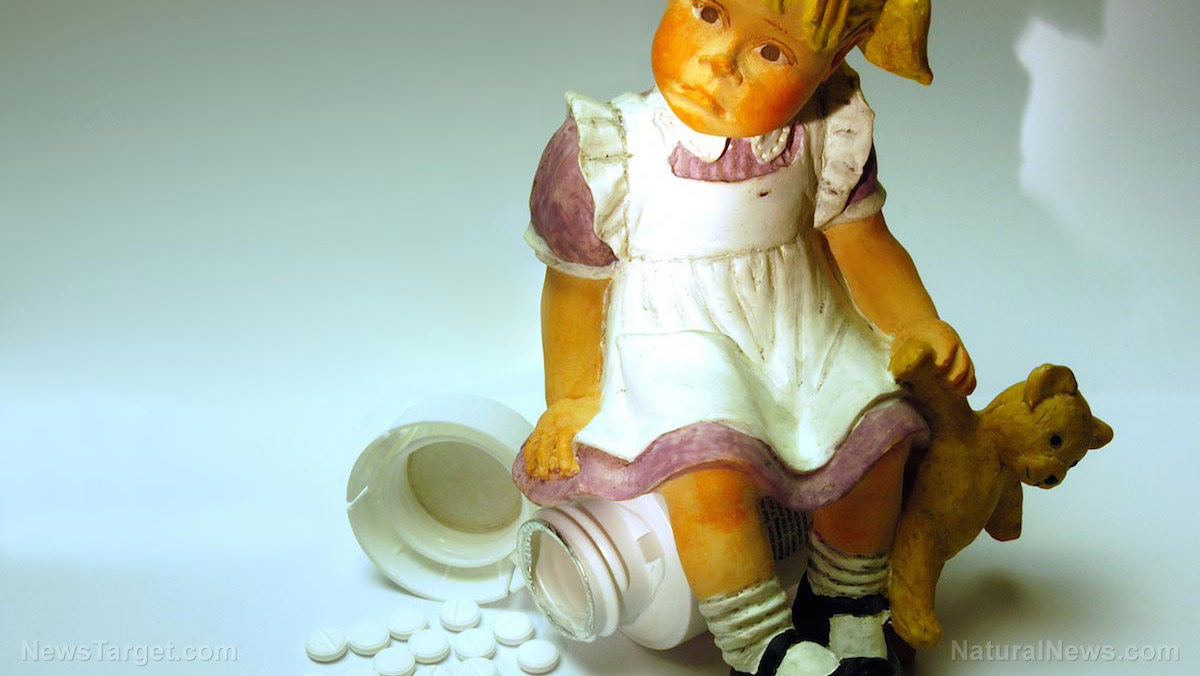Baby Boomers are partying too much: Heavy drinking is causing serious illness across the age group
07/24/2018 / By Rhonda Johansson

Baby boomers seem to be spending their nights drinking, data from Public Health England suggest. This conclusion, while initially funny at first glance, is highlighting a very serious and growing problem facing adults today who are older than 55 years old. Official figures have just concluded that elderly people now comprise a large portion of alcoholics in Britain, with alcoholism being the sixth most common cause of disability among people who are in their 50s and 60s. Heavy drinking is attributed as one of the main causes of severe illnesses among baby boomers, including an increased risk of heart disease and alcohol-caused dementia.
Dr. Tony Rao who explained the figures in the British Journal of Psychiatry said that despite the baby boomer generation having a generally longer lifespan, many adults in this group drink too much. Inevitably, this leads to older patients being admitted for alcohol-related diseases which lowers their quality of life. Dr. Rao blames a “middle-class culture of drinking wine at home” as the reason for this phenomenon.
“The baby boomers grew up in a post-war world where there were much more liberal attitudes to alcohol and less attention paid to health risks,” he says. “That has now transplanted itself into later life.”
It is not only the mindset of these adults that comes into play; the environment in which they drink also has an important role. In the past, drinks were taken in a bar or restaurant where people could “limit” their alcohol intake by buying just one pint of beer or a glass of wine. However, modern sensibilities have made it more acceptable for people to order bottles of wine online, have these delivered to their homes, and then for these to be consumed without social limits.
“Loneliness, boredom and disposable income has meant home drinking has brought a lot of this on,” Dr. Rao said.
Indiscriminate drinking, especially among people whose physical health is not all that great, can lead to a variety of problems. These include an increased risk of cancer and liver disease. Dr. Rao estimates that nearly half of hospital admissions related to heavy drinking were among those who were 55 to 74 years old.
Excessive alcohol drinking can also increase the risk of developing alcohol-related dementia which can cause personality changes and brain damage. Unfortunately, unlike a heart attack or losing one’s memory, alcohol-related dementia is a gradual condition, making it more difficult to detect. Many patients remain unaware that their brain has already changed due to their alcohol consumption. (Related: Alcohol – not marijuana – is the gateway drug, study shows.)
Alcohol use among the elderly is increasing. Experts have now placed it as the sixth leading cause of disability for people aged 50 to 69. In 1990, it only ranked as the 16th.
Katherine Brown, Chief Executive of the Institute of Alcohol Studies, says that these figures are alarming. She argues that more effort needs to be made to inform the public about this concerning misuse of alcohol. She says that while most people picture teenagers as those who abuse alcohol, it is actually one’s grandparent who is most at risk.
Brown, along with fellow health colleagues, are asking for a minimum unit price for alcohol sold in England be set. Cheap alcohol, she says, is one of the main ways baby boomers get drunk.
The old and the restless
Alcohol reacts different among older people than in younger folks. Drinking even small amounts can cause dramatic changes in your body if you are over 50. Experts warn that small amounts of alcohol can impair your judgment, coordination, and reaction time. This increases your risk of falls and fractures. Alcohol likewise has a substantial effect on your heart and can prompt a heart attack.
You can read more stories on how various substances affect the health of the elderly at Research.news.
Sources include:
Tagged Under: addiction, aging, Alcohol, alcohol consumption, alcoholism, Baby Boomers, Diseases, elderly, longevity, mental health, older adults, Public Health, seniors




















